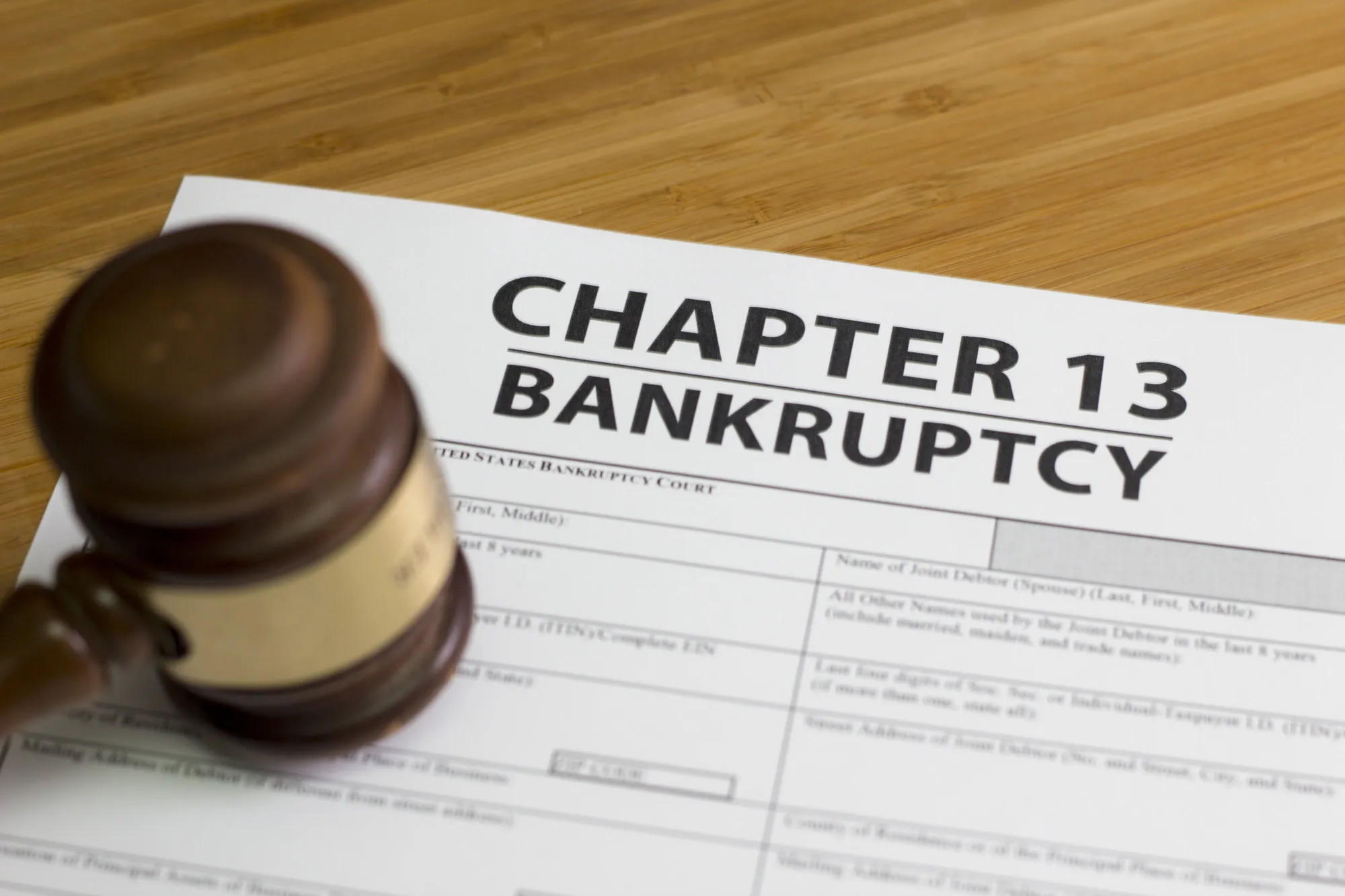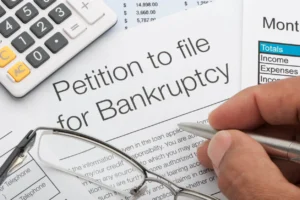Did you know that the average American owes almost $10,500 in personal taxes each year? For individuals struggling with Internal Revenue Service (IRS) debt and tax issues, understanding bankruptcy and taxes is hard.
But it doesn’t have to be. Take a look at our complete guide about how bankruptcy and taxes work.
How Bankruptcy and Taxes Work

What is bankruptcy?
If you’re an American who has difficulty paying your federal taxes, then bankruptcy may help to give you relief from some, if not all, of your debt.
One of the most popular forms of bankruptcy is called Chapter 13. But there’s a catch. There are four important things you must do before you think about filing a Chapter 13 bankruptcy:
- Submit all of your tax returns from the last four years before you file.
- File all of your required tax returns throughout your bankruptcy.
- Pay all taxes currently owed throughout your bankruptcy.
- Failing to file returns or pay taxes in bankruptcy results in case dismissal.
Are the other forms of bankruptcy filings for individuals?
Additional types of bankruptcy include Chapter 7 and Chapter 11. For family farmers and fisherman, Chapters 9, 12 and 15 are the proper types of bankruptcy.
Why Does This Matter?

Although over 20 million Americans would reap benefits from filing bankruptcy, only less than 500,000 people did in 2017. That means that fewer people than ever are actually taking advantage of the benefits of bankruptcy.
If you’re one of the 500,00 that actually did file for bankruptcy recently, you may be curious taxes work during bankruptcy. Fortunately, we’re here to help.
According to Joshua S. Barger, vice president at Foundation Financial Group, “people that file bankruptcy have to make sure that there are a few things taken care of when it comes to filing their taxes.”
Before you file your bankruptcy taxes, you have to:
- File your individual tax return, or ask the IRS for an extension.
- File your estate tax return, or form 1041, for your bankruptcy estate.
With our guide, you’ll have a much easier time for the next time that April 15th rolls around.
Bankruptcy Taxes

Here’s the deal: one of the most important things to remember when you file your bankruptcy taxes is that the tax return process is completely different than it was before.
As bankruptcy lawyer Carl G. Archer explained, “The concept of bankruptcy is that you, as a debtor, surrender your right to handle your own affairs, and a trustee is appointed to oversee them.”
Archer continued, “Your affairs become part of an ‘estate,’ the same way they would be if you were incapacitated or if you had died. The trustee’s sole responsibility is to pay creditors with any assets that aren’t exempt under federal or state law, whichever is applicable.”
Chapter 7 Bankruptcy

Why do I have a file a tax form for individuals and for the bankruptcy estate?
If you’re a Chapter 7 debtor, then Archer suggested that “you would file your usual 1040 the same way you normally would any other time.”
Does the bankruptcy trustee have to file their own 1040 form?
Archer revealed that “the trustee would not have anything to do with that because it’s not a debt; it’s an obligation that you have to file that paperwork with the federal government.”
But Chapter 7 debtors do have to file their own Form 1041 for their bankruptcy estate.
Chapter 11 Bankruptcy

What’s the deal with Chapter 11 bankruptcy?
If you’re an American who filed for Chapter 11 bankruptcy, then you’ll usually stay in control of your estate as the bankruptcy trustee. That means that you must fill out the 1040 individual return and the 1041 bankruptcy estate return.
Barger elaborated that, “In both cases, there has to be two tax returns filed for that current tax year.”
Bottom line: Whether you filed for Chapter 7 or Chapter 11 bankruptcy, then you’re required to file Form 1040 and Form 1041 for your self and your bankruptcy estate.
Although most Chapter 11 bankruptcy filings are submitted by companies, it’s still essential for individuals to understand Form 1040 and Form 1041 tax filing.
While it varies from state to state, your tax refund might be turned over to you to assist you with paying off your bankruptcy tax.
Chapter 13 Bankruptcy

What happens if you file for Chapter 13 bankruptcy?
If you’ve filed for Chapter 13 bankruptcy, then it’s up to you to pay any disposable income to a special monthly plan to pay back the money you owe to creditors.
About Chapter 13 filings, Archer highlighted that “there is typically a continuing obligation of the debtor to file timely taxes and provide the returns to the trustee, and to turn over all refunds for payments to creditors.”
However, Chapter 13 debtors are still required to file Form 1041.
But here’s the kicker: bankruptcy might help to clear IRS and tax debt!
Does Bankruptcy Clear IRS Debt?

Now: bankruptcy doesn’t necessarily clear IRS debt in every case, but it actually does in some cases.
For those who’ve had a Chapter 7 tax bankruptcy discharge, then their IRS debt will be cleared up if you meet all of the requirements.
For individuals who had their Chapter 13 bankruptcy discharged, then you can get a huge discount on the amount of IRS debt owed if you meet all of the criteria.
If you’re a Chapter 13 debtor who still has IRS debt left over after your reduction, then the extra debt will be put on a payment plan by the court.
That’s not all. If your bankruptcy filing isn’t:
- Already discharged
- Put on a payment plan
- Receiving payments
Then you’re like to face additional collection charges on your IRS debt.
Pro tip? If you file a Chapter 7 bankruptcy, then you’re more likely to have your entire IRS debt cleared.
Do I Have to File for Bankruptcy?

Even individuals with massive IRS debts might be able to prevent filing for bankruptcy. If you’re thinking about other options, you’ll want to consider a few things about your situation first:
- Are you someone who has a large amount of debt outside of the IRS?
- Have you considered hiring a tax attorney?
If you are struggling with debt, then you might want to consider filing for a Chapter 13 bankruptcy. That way, you can start a payment plan that’ll help you pay back your debt in a reasonable way.
For those that can hire a tax attorney, then it might be beneficial to talk to your lawyer before you decide to declare bankruptcy.
However, if you do decide to file for bankruptcy, then it could help you to reduce your debt or solve your tax issues in an efficient manner.
Keep in mind: bankruptcy is not a “cure-all” for your tax issues. Remember that you might have to pay additional taxes after your bankruptcy filing.
So, it’s important to talk to a professional to learn how to prepare for your financial future so you don’t have to file for bankruptcy again.
You might be wondering: does bankruptcy clear tax debt too?
Does Bankruptcy Clear Tax Debt?

Ever since the IRS updated its inflation-adjusted rates, people who struggle with tax issues are wondering how the new tax laws will affect them.
For individuals dealing with tax issues, bankruptcy might be the right solution for clearing tax debt.
How can you actually use this?
While you might be able to completely erase all bankruptcy taxes, you may be able to discharge some tax debt through a Chapter 7 bankruptcy. But only if your tax debts meets all the criteria for Chapter 7 bankruptcy, like:
- Your tax debt must only be related to income taxes.
- You never filed a false tax return or tried to evade taxes.
- Your tax debt has been owed for three years or more.
- You filed your tax return for the debt that you want to be erased.
- Your tax debt meets the “240-day rule.”
How to Qualify for a Tax Bankruptcy Discharge

Basically, there’s no way that your tax debt can be discharged if it has anything to do with payroll taxes and fraud penalties.
It gets worse: it’s impossible to have your tax debt erased if you ever put a fake Social Security number on your tax filings.
Not only that, but your tax return for your debt must have been due three years prior to filing for bankruptcy to qualify for a tax discharge.
Plus, you must have actually submitted a tax return for your debt two years before you declared bankruptcy to get your tax debt wiped out.
Last but not least, your debt must have been looked at by the IRS at least six months before your bankruptcy filing to have your tax debt discharged.
What about discharging a federal tax lien?
Unfortunately, even if your taxes are erased in a Chapter 7 bankruptcy filing, it still won’t discharge your previous tax liens.
Although a Chapter 7 bankruptcy could potentially wipe out your tax debt, it won’t take away any tax liens on your assets that happened before your bankruptcy filing.
We can’t emphasize this enough: you’re still required to pay your entire tax lien before you can sell your home.
Benefits of Chapter 7 Bankruptcy

Did you know that almost 795,000 people filed for bankruptcy in 2016?
That means that more Americans than ever are turning to bankruptcy to help to clear their bankruptcy taxes.
If you’re a Chapter 7 debtor that meets all of the requirements we mentioned for tax discharges, then you should know that a Chapter 7 filing won’t clear all of your tax debts, including:
- The tax debts that you didn’t file a tax return for.
- The tax debts that you filed a tax return for two years prior to bankruptcy.
- The tax debts that are from false tax returns.
- The tax debts that are from tax evasion attempts.
As long as you’re only trying to have your income tax discharged, then you may be able to have all of your tax debts cleared through Chapter 7 bankruptcy.
Perks of Chapter 11 Bankruptcy

What about Chapter 11 bankruptcy debtors?
Even though it’s uncommon for an individual to file for Chapter 11 bankruptcy, it’s still essential to know that this form of bankruptcy won’t wipe out all of your tax debts.
However, Chapter 11 bankruptcy filings are a great way to reorganize your debts. While some debts are paid back, others are completely erased.
If this is the case, then your bankruptcy case is usually looked over by a trustee who will determine who should be paid back first: the IRS or various creditors.
Advantages of Chapter 12 Bankruptcy

Why does Chapter 12 bankruptcy only apply to fisherman and farmers?
Since fisherman and farmers were usually the first businesses to be hit by financial recessions and environmental issues, like the Great Depression or the Dust Bowl.
Luckily, the process for filing Chapter 12 bankruptcy is exactly the same as filing for a Chapter 13 bankruptcy except for some special paperwork.
Strengths of Chapter 13 Bankruptcy

What’s the real story about Chapter 13 bankruptcy?
Filing for a Chapter 13 bankruptcy is one of the best ways for wage earners to pay back their bankruptcy taxes over a three to five year period using an installment plan.
Chapter 13 debtors can actually discharge all of their payment plan debts if they meet the requirements from the bankruptcy court.
However, there are a few tax debts that can’t be erased by bankruptcy, such as:
- Taxes that were withheld by the government.
- Taxes that accumulated after filing a false return.
- Taxes that accrued after tax evasion attempts.
But beware: Chapter 13 bankruptcies have an exception that still lets the IRS collect payments if they were not aware of your bankruptcy declaration beforehand.
Want to Know The Best Part?

If you’re someone who’s struggling with tax issues and debt, then you don’t have to deal with your bankruptcy and taxes alone. Whether you’re considering bankruptcy to clear your IRS or tax debt, there are tax attorneys that can help you solve your financial troubles.
Contact Silver Tax Group to hire a tax attorney that can help you to get out of tax debt and IRS tax issues. Check out our services page for more information about your bankruptcy and taxes today!



